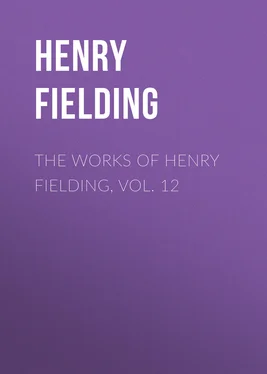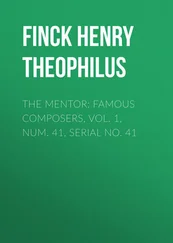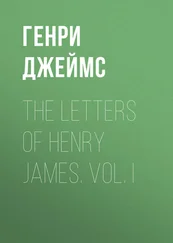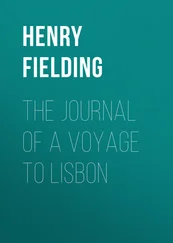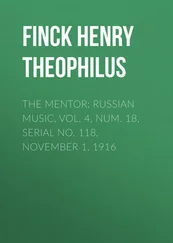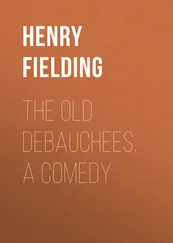Henry Fielding - The Works of Henry Fielding, vol. 12
Здесь есть возможность читать онлайн «Henry Fielding - The Works of Henry Fielding, vol. 12» — ознакомительный отрывок электронной книги совершенно бесплатно, а после прочтения отрывка купить полную версию. В некоторых случаях можно слушать аудио, скачать через торрент в формате fb2 и присутствует краткое содержание. Жанр: foreign_prose, Юмористические книги, foreign_antique, foreign_dramaturgy, на английском языке. Описание произведения, (предисловие) а так же отзывы посетителей доступны на портале библиотеки ЛибКат.
- Название:The Works of Henry Fielding, vol. 12
- Автор:
- Жанр:
- Год:неизвестен
- ISBN:нет данных
- Рейтинг книги:4 / 5. Голосов: 1
-
Избранное:Добавить в избранное
- Отзывы:
-
Ваша оценка:
- 80
- 1
- 2
- 3
- 4
- 5
The Works of Henry Fielding, vol. 12: краткое содержание, описание и аннотация
Предлагаем к чтению аннотацию, описание, краткое содержание или предисловие (зависит от того, что написал сам автор книги «The Works of Henry Fielding, vol. 12»). Если вы не нашли необходимую информацию о книге — напишите в комментариях, мы постараемся отыскать её.
The Works of Henry Fielding, vol. 12 — читать онлайн ознакомительный отрывок
Ниже представлен текст книги, разбитый по страницам. Система сохранения места последней прочитанной страницы, позволяет с удобством читать онлайн бесплатно книгу «The Works of Henry Fielding, vol. 12», без необходимости каждый раз заново искать на чём Вы остановились. Поставьте закладку, и сможете в любой момент перейти на страницу, на которой закончили чтение.
Интервал:
Закладка:
– dolere sermone pedestri.
The true meaning of both which citations is, that bombast is the proper language for joy, and doggrel for grief; the latter of which is literally implied in the sermo pedestris, as the former is in the sesquipedalia verba.
Cicero recommendeth the former of these: "Quid est tarn furiosum vel tragicum quam verborum sonitus inanis, nulla subjecta sententia neque scientia." What can be so proper for tragedy as a set of big sounding words, so contrived together as to convey no meaning? which I shall one day or other prove to be the sublime of Longinus. Ovid declareth absolutely for the latter inn:
Omne genus scripti gravitate tragoedia vincit.
Tragedy hath, of all writings, the greatest share in the bathos; which is the profound of Scriblerus.
I shall not presume to determine which of these two stiles be properer for tragedy. It sufficeth, that our author excelleth in both. He is very rarely within sight through the whole play, either rising higher than the eye of your understanding can soar, or sinking lower than it careth to stoop. But here it may perhaps be observed that I have given more frequent instances of authors who have imitated him in the sublime than in the contrary. To which I answer, first, Bombast being properly a redundancy of genius, instances of this nature occur in poets whose names do more honour to our author than the writers in the doggrel, which proceeds from a cool, calm, weighty way of thinking. Instances whereof are most frequently to be found in authors of a lower class. Secondly, That the works of such authors are difficultly found at all. Thirdly, That it is a very hard task to read them, in order to extract these flowers from them. And lastly, it is very difficult to transplant them at all; they being like some flowers of a very nice nature, which will flourish in no soil but their own: for it is easy to transcribe a thought, but not the want of one. The EARL OF ESSEX, for instance, is a little garden of choice rarities, whence you can scarce transplant one line so as to preserve its original beauty. This must account to the reader for his missing the names of several of his acquaintance, which he had certainly found here, had I ever read their works; for which, if I have not a just esteem, I can at least say with Cicero, "Quae non contemno, quippe quae nunquam legerim." However, that the reader may meet with due satisfaction in this point, I have a young commentator from the university, who is reading over all the modern tragedies, at five shillings a dozen, and collecting all that they have stole from our author, which shall be shortly added as an appendix to this work.
DRAMATIS PERSONAe
King Arthur , a passionate sort of king, | husband to queen Dollallolla, of whom he | stands a little in fear; father to Huncamunca,| Mr MULLART. whom he is very fond of, and in love with | Glumdalca. |
Tom Thumb the Great , a little hero | with a great soul, something violent in his | YOUNG temper, which is a little abated by his | VERHUYCK. love for Huncamunca. |
Ghost of Gaffer Thumb , a whimsical sort | Mr LACY. of ghost. |
Lord Grizzle , extremely zealous for the | liberty of the subject, very cholerick in his | Mr JONES. temper, and in love with Huncamunca. |
Merlin , a conjurer, and in some sort | Mr HALLAM.
father to Tom Thumb. |
Noodle, Doodle, courtiers in place, and | Mr REYNOLDS,
consequently of that party that is uppermost | Mr WATHAN.
Foodle , a courtier that is out of place, | and consequently of that party that is | Mr AYRES. undermost |
Bailiff, and Follower, of the party of | Mr PETERSON, the plaintiff. | Mr HICKS.
Parson , of the side of the church. | Mr WATSON.
Queen Dollallolla , wife to king Arthur, | and mother to Huncamunca, a woman intirely | Mrs MULLART. faultless, saving that she is a little given | to drink, a little too much a virago towards | her husband, and in love with Tom Thumb. |
The Princess Huncamunca , daughter to | their majesties king Arthur and queen | Dollallolla, of a very sweet, gentle, and | Mrs JONES. amorous disposition, equally in love with | Lord Grizzle and Tom Thumb, and desirous to | be married to them both. |
Glumdalca , of the giants, a captive |
queen, beloved by the king, but in love with | Mrs DOVE.
Tom Thumb. |
Cleora, Mustacha, maids of honour in love with Noodle and
Doodle. — Courtiers, Guards, Rebels, Drums, Trumpets, Thunder and Lightning .
ACT I
SCENE I. — The Palace . DOODLE, NOODLE
Doodle . Sure such a [1]day as this was never seen!
The sun himself, on this auspicious day,
Shines like a beau in a new birth-day suit:
This down the seams embroidered, that the beams.
All nature wears one universal grin.
[Footnote 1: Corneille recommends some very remarkable day wherein to fix the action of a tragedy. This the best of our tragical writers have understood to mean a day remarkable for the serenity of the sky, or what we generally call a fine summer's day; so that, according to this their exposition, the same months are proper for tragedy which are proper for pastoral. Most of our celebrated English tragedies, as Cato, Mariamne, Tamerlane, &c., begin with their observations on the morning. Lee seems to have come the nearest to this beautiful description of our author's:
The morning dawns with an unwonted crimson,
The flowers all odorous seem, the garden birds
Sing louder, and the laughing sun ascends
The gaudy earth with an unusual brightness;
All nature smiles. — Caes. Borg .
Massinissa, in the New Sophonisba, is also a favourite of the sun:
– The sun too seems
As conscious of my joy, with broader eye
To look abroad the world, and all things smile
Like Sophonisba.
Memnon, in the Persian Princess, makes the sun decline rising, that he may not peep on objects which would profane his brightness:
– The morning rises slow,
And all those ruddy streaks that used to paint
The day's approach are lost in clouds, as if
The horrors of the night had sent 'em back,
To warn the sun he should not leave the sea,
To peep, &c.
]
Nood . This day, O Mr Doodle, is a day
Indeed! – A day, [1] we never saw before.
The mighty [2] Thomas Thumb victorious comes;
Millions of giants crowd his chariot wheels,
[3] Giants! to whom the giants in Guildhall
Are infant dwarfs. They frown, and foam, and roar,
While Thumb, regardless of their noise, rides on.
So some cock-sparrow in a farmer's yard,
Hops at the head of an huge flock of turkeys.
[Footnote 1: This line is highly conformable to the beautiful simplicity of the antients. It hath been copied by almost every modern.
Not to be is not to be in woe. — State of Innocence .
Love is not sin but where 'tis sinful love. — Don Sebastian .
Nature is nature, Laelius. — Sophonisba .
Men are but men, we did not make ourselves. — Revenge . ]
[Footnote 2: Dr B – y reads, The mighty Tall-mast Thumb. Mr D – s, The mighty Thumbing Thumb. Mr T – d reads, Thundering. I think Thomas more agreeable to the great simplicity so apparent in our author.]
[Footnote 3: That learned historian Mr S – n, in the third number of his criticism on our author, takes great pains to explode this passage. "It is," says he, "difficult to guess what giants are here meant, unless the giant Despair in the Pilgrim's Progress, or the giant Greatness in the Royal Villain; for I have heard of no other sort of giants in the reign of king Arthur." Petrus Burmannus makes three Tom Thumbs, one whereof he supposes to have been the same person whom the Greeks called Hercules; and that by these giants are to be understood the Centaurs slain by that hero. Another Tom Thumb he contends to have been no other than the Hermes Trismegistus of the antients. The third Tom Thumb he places under the reign of king Arthur; to which third Tom Thumb, says he, the actions of the other two were attributed. Now, though I know that this opinion is supported by an assertion of Justus Lipsius, "Thomam illum Thumbum non alium quam Herculem fuisse satis constat," yet shall I venture to oppose one line of Mr Midwinter against them all:
Читать дальшеИнтервал:
Закладка:
Похожие книги на «The Works of Henry Fielding, vol. 12»
Представляем Вашему вниманию похожие книги на «The Works of Henry Fielding, vol. 12» списком для выбора. Мы отобрали схожую по названию и смыслу литературу в надежде предоставить читателям больше вариантов отыскать новые, интересные, ещё непрочитанные произведения.
Обсуждение, отзывы о книге «The Works of Henry Fielding, vol. 12» и просто собственные мнения читателей. Оставьте ваши комментарии, напишите, что Вы думаете о произведении, его смысле или главных героях. Укажите что конкретно понравилось, а что нет, и почему Вы так считаете.
